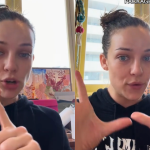
Look, we get it – chances are you haven’t even begun to think about if your future kids will go to public or private school, and, if you choose the latter, just how the hell you’re gonna pay for it.
But that doesn’t mean you shouldn’t care about the federal government’s radical new plan to shake up the schooling system, because if it goes ahead, then it’s going to have long lasting and far reaching consequences for all of us.
In a leaked confidential discussion paper (where “confidential” means “Fairfax got their hands on it”), the Department of the Prime Minister and Cabinet have outlined four different radical ideas to bring about funding reform to schools.
It’s idea #4 that’s perhaps the most drastic. It proposes the federal government becomes the dominant funder of all schools, and decides as and when to distribute that funding based on student need and the ability of families to write the school a big cheque. Labor ministers have dubbed it a “public school co-payment”.
“The States and Territories would have the option to ‘top-up’ funding to government schools, if they wished to do so, to ensure all public students, regardless of the ability of families to make a contribution, were able to attend for free.”
It follows think tank Centre for Independent Studies’ (CIA) recommendation that high-income families pay $1,000 per year to send their kids to public schools, although it’s unclear if this is the same fee recommended in these new proposals.
The proposals are in a green paper distributed to state and territory governments.
The other funding proposals are:
#1 Giving the entire responsibility of public and private schools to the states and territories.
This would save the federal government $15 billion annually, a price tag which would presumably be hoisted to the state / territory governments. It would also “provide absolute clarity to the public as to which level of government is responsible for schooling”.
#2 Giving the states and territories full responsibility of state schools, while the federal government looks after private schools.
We can’t be sure, but it looks like this may be the favoured option. Tony Abbott told The Australian that public schools were “absolutely the business of the state and territory governments”, and Education Minister Christopher Pyne said the government has “a particular responsibility for non-government schooling that we don’t have for government schooling.” Not sure what they mean here. Loyalty to the old boys club of their respective private schools?
#3 Reducing Commonwealth involvement in schools, but with no significant structural change.
Not much information about this third option yet, but as it seems the least offensive, it might just be the winner if all other options completely tank.
The Australian Education Union has come out swinging against these proposals, calling on the state and government territories to reject them. Federal President of the union, Correna Haythorne, said:
“It is a fundamental right of every Australian to be able to access public schools free of charge and has been since the 19th century.”
Considering families fight tooth and nail to get into suburbs with good public schools, or pay through the teeth to get their kids into private schools, naturally everyone’s a little jumpy and outraged at anything this radical. (Side note: teeth. Who knew they were so relevant to schooling?)
The federal government has reacted with the level of condescension required, warning against a “hysterical overreaction.”
Meanwhile, Labor citizenship and multiculturalism spokeswoman Michelle Rowland accused the PM of basically asking Australia to move along, nothing to see here.
“This is a government that went to the last election saying they were on a Gonski unity ticket – if that was a lie, good on you, because the Prime Minister stared down the barrel the night before the election and said no cuts to education.”

Picture: William West via Getty Images
via Fairfax



